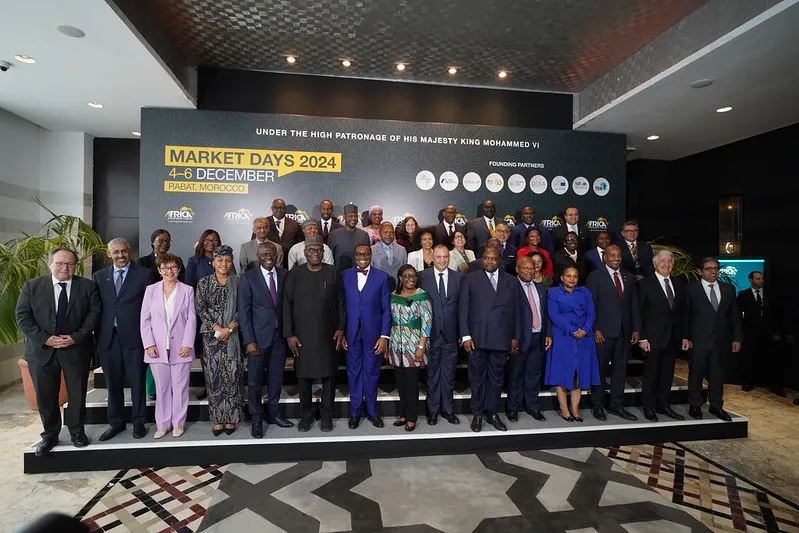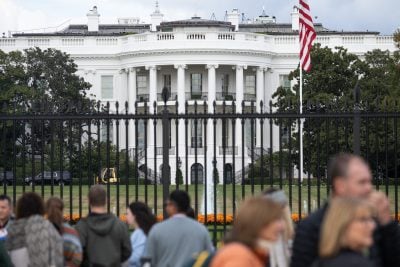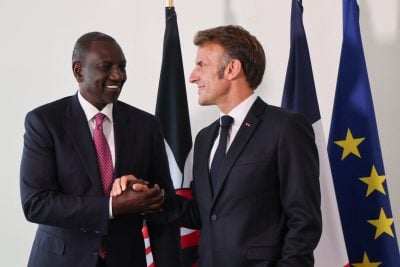This year’s Africa Investment Forum (AIF), held in Rabat, Morocco from 4th to 6th December, generated $29.5bn in new investor commitments for projects on the continent.
The commitments were made after a total of $40.9bn of deals were presented to investors in the 41 boardrooms that were set up during the forum. Among the showcased deals, 34 were investment-ready, while 7 remained in the early-stage phase.
The forum attracted the widest participation ever since its launch in 2018. A total of 1,707 investors from 200 institutions across 83 countries attended the event.
A number of significant agreements were reached during the AIF. Seedstars Africa Ventures I, a venture capital fund targeting early-stage investments in scalable African start-ups, announced a first close of $42m, with support from the African Development Bank, EIB Global (under the EU’s ACP Trust Fund and Boost Africa initiative), and other global investors. The African Development Bank and Bank of Africa SA also signed a €50m risk-sharing agreement to boost private-sector financing and African trade, aiming to generate €200m in additional trade and support SMEs across over 20 African countries.
Another agreement was inked between the African Development Bank Group, in partnership with the Development Bank of Southern Africa (DBSA) and institutional investors, to explore a multi-originator synthetic securitisation transaction aimed at mobilising private capital and de-risking African development finance institutions. The initiative builds on the success of the Bank’s $1bn Room to Run Programme and will create a platform to unlock lending capacity for high-impact projects across climate finance, infrastructure, and financial intermediation.
Italy’s Mattei Plan gains momentum
The AIF saw an agreement signed between SACE, an Italian insurance-financial group and the African Development Bank Group to provide credit protection and foster investment in Africa under the Italian government’s Mattei Plan. The agreement, part of a broader initiative by the Italian Government and the Bank, aims to support high-impact projects in sectors like infrastructure, agribusiness, healthcare, energy, and education.
The $6bn Mattei Plan, unveiled earlier this year by Italian Prime Minister Georgia Meloni, seeks to strengthen economic ties and create an energy hub, with priority given to countries such as Algeria, Egypt, Ethiopia, and Morocco. SACE’s financial products, including the Push Strategy, will help connect African buyers with Italian SMEs, enhancing Italy-Africa business relations.
Believe the data, says Adesina
Opening the forum, Akinwumi Adesina, president and chairman of the board of directors of the African Development Bank Group, made a forceful call for more investment in the continent, urging investors to “believe the data” and not be swayed by the misperceptions about the continent. Africa, he noted, will account for a quarter of all people on the planet by 2050, boosting demand for goods and services on the continent.
“The demand for housing is expected to rise and make an investment opportunity of up to $1.4 trillion. The size of Africa’s food and agriculture market will rise to $1 trillion by 2030. Demand for infrastructure presents an annual investment opportunity of at least $170bn a year in energy, transport, infrastructure, water and sanitation, and many more,” he pointed out, adding that “Africa presents such a unique investment opportunity which cannot be ignored.”
This year’s forum saw delegations from, among others, India, China and Japan, an indication of the Forum’s impact as well as the rising interest in opportunities on the continent. A 2024 survey by the Africa Private Equity Capital Association, Adesina said, had shown that 85% of limited partners plan to increase their allocation of private capital to Africa within two years, and 52% believe Africa’s private capital will be more attractive than other emerging markets within five years.
With a significant share of key green transition minerals, the continent also has a unique opportunity to move up the electric vehicle production value, which is expected to grow from $7 trillion in 2030 to $59 trillion by 2050, he said.
The AIF is an initiative of 9 DFIs including the AfDB Group, Africa50, Afreximbank, IsDB, DBSA, EIB, TDB, BADEA, and AFC. This year, it welcomed the Arab Bank for Economic Development in Africa into the fold.
Want to continue reading? Subscribe today.
You've read all your free articles for this month! Subscribe now to enjoy full access to our content.
Digital Monthly
£8.00 / month
Receive full unlimited access to our articles, opinions, podcasts and more.
Digital Yearly
£70.00 / year
Our best value offer - save £26 and gain access to all of our digital content for an entire year!

 Sign in with Google
Sign in with Google 



